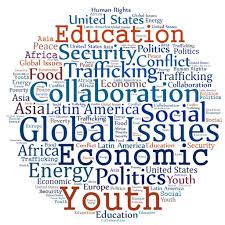Crisis Response and Recovery: Lessons from Global Social Service Management
In today's rapidly changing world, it is crucial for nations to be prepared for any crisis that may arise. From natural disasters to economic downturns, a well-managed social service system can make all the difference in the response and recovery efforts. In this article, we will explore 15 key points on the promotion of global good governance and management of social services, aiming to inform, motivate, and inspire our fellow Africans.
-
Importance of Good Governance: Effective crisis response and recovery require strong leadership and good governance. Transparent decision-making processes, accountability, and inclusivity are essential for managing social services in times of crisis.
-
Building Resilient Social Service Systems: Countries should invest in building robust social service systems that can withstand shocks and adapt to changing circumstances. This includes ensuring the availability of trained professionals, adequate infrastructure, and effective coordination mechanisms.
-
Learning from Global Experiences: By studying successful approaches to crisis response and recovery from around the world, we can identify best practices and apply them to our local context. Sharing knowledge and experiences is key to promoting global unity and improving social service management.
-
Early Warning Systems: Developing and implementing early warning systems can help identify potential crises in advance, allowing for timely interventions and minimizing the impact on vulnerable populations. This can include monitoring indicators such as unemployment rates, disease outbreaks, or environmental degradation.
-
Collaboration and Partnerships: Effective crisis response and recovery require collaboration among various stakeholders, including government agencies, civil society organizations, and the private sector. Building strong partnerships can enhance the efficiency and effectiveness of social service management.
-
Disaster Risk Reduction: Investing in disaster risk reduction measures can significantly reduce the impact of crises. This includes measures such as improving infrastructure resilience, implementing early warning systems, and promoting community participation in decision-making processes.
-
Social Protection Programs: Robust social protection programs play a vital role in crisis response and recovery. These programs can provide a safety net for vulnerable populations, ensuring access to essential services, such as healthcare, education, and food security.
-
Empowering Local Communities: Engaging and empowering local communities is essential for effective crisis response and recovery. Local knowledge and participation can lead to more context-specific and sustainable solutions.
-
Respecting Human Rights: Crisis response and recovery efforts should always prioritize the protection and promotion of human rights. This includes ensuring access to basic services, non-discrimination, and the participation of marginalized groups in decision-making processes.
-
Harnessing Technology: Utilizing technology can enhance the efficiency and effectiveness of social service management during crises. This can include the use of mobile applications for data collection, online platforms for service delivery, and artificial intelligence for decision-making support.
-
Strengthening Health Systems: The COVID-19 pandemic has highlighted the importance of strong and resilient health systems. Investing in healthcare infrastructure, training healthcare professionals, and ensuring equitable access to healthcare services are crucial for crisis response and recovery.
-
Addressing Climate Change: Climate-related crises, such as extreme weather events and natural disasters, are becoming more frequent and severe. Promoting environmental sustainability and taking proactive measures to address climate change are integral to effective crisis management.
-
Mental Health and Psychosocial Support: Crises can have a profound impact on mental health and well-being. Integrating mental health and psychosocial support services into social service systems is crucial for supporting individuals and communities during and after crises.
-
Gender Equality and Social Inclusion: Promoting gender equality and social inclusion is essential for effective crisis response and recovery. Recognizing and addressing the specific needs and vulnerabilities of different groups, such as women, children, and persons with disabilities, is crucial for inclusive social service management.
-
Continuous Learning and Improvement: Crisis response and recovery efforts should be seen as learning opportunities. Conducting evaluations, collecting feedback, and continuously improving social service management practices are key to building resilience and ensuring better outcomes in the future.
In conclusion, the promotion of global good governance and management of social services is crucial for effective crisis response and recovery. By learning from global experiences, investing in resilience-building measures, and empowering local communities, we can ensure a more sustainable and inclusive future. Let us all develop the skills and knowledge needed to navigate crises together and promote global unity. #CrisisResponse #SocialServiceManagement #GlobalGoodGovernance





